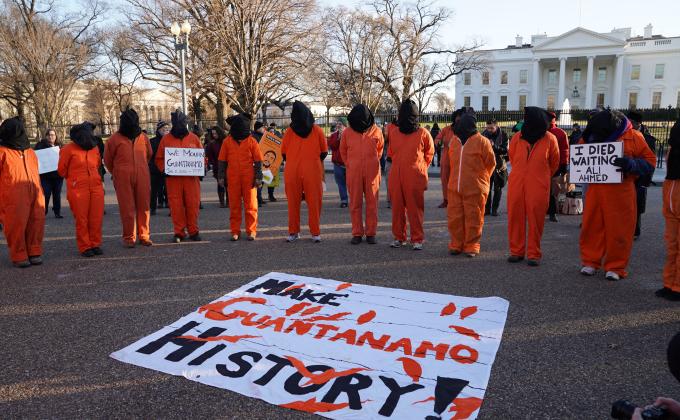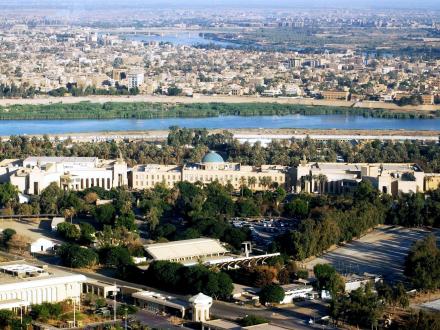Walking free from prison following a period of detention is surely a satisfying experience, but also one replete with anxiety. Dealing with community ostracism, readjusting to family life, avoiding old associations, and simply finding paid work are difficulties faced by most former inmates. For those convicted of violent extremist activity, the hurdles can be even higher and failure to overcome them may heighten the risk of reoffending.
In 2018, colleagues at the University of Indonesia and I conducted a project to investigate such transitions among recently released extremist prisoners in Indonesia. The team interviewed 28 former inmates, as well as a number of stakeholders from the Indonesian government and civil society. This perspective builds on the findings of this project, of which a full paper was recently published in Studies in Conflict and Terrorism.
Over 650 people have been released after serving sentences for terrorism offences in Indonesia since the first Bali bombing attack in 2002. The government has attempted to assist with their reintegration in recent years, but while this willingness to provide support is encouraging, stretched human resources mean officers from probation services and the national counterterrorism agency struggle to maintain frequent engagements, which impedes the impact of intended reintegration initiatives. Working more closely with a range of stakeholders could boost the support structures in place for each former inmate, and potentially produce more constructive outcomes.
Prisons, Allegiance, and Remission
Almost 300 convicted terrorists are currently spread out among over 100 prison facilities in Indonesia, while a few hundred more are on remand pending investigation or trial. The rise of ISIS in 2014 both energised and divided the Southeast Asian nation’s jihadi movement, and this division is most visible behind bars, where inmates have clashed over allegiance and the extent of each other’s extremism.
Such divergence is also illustrated by the differing degrees to which prisoners are willing to sign a declaration pledging loyalty to the Indonesian state, which is a requirement for extremist inmates to join rehabilitation programmes and secure parole. ISIS supporters have almost exclusively refused to cooperate with the government and will therefore serve out their entire sentences. Those who identify with the al-Qaeda brand have often been more pragmatic, accepting state assistance for their families, engaging with prison rehabilitation programmes and aiming for early release.
Once inmates in Indonesian prisons serve two-thirds of their sentence they become eligible to apply for parole. Risk assessment for terrorist inmates remains underdeveloped in Indonesia and violent extremists mostly follow the same procedures as for regular prisoners. Counterterrorism police hold exit interviews with the highest-risk individuals, but the majority return to their communities without such an assessment. Overburdened parole officers subsequently attempt to keep tabs on them when they are out of prison. With many officers loaded with around 100 clients, most ‘check-ins’ are conducted over the phone.
Homecoming, Stigma and Feet Finding
The Indonesian national counterterrorism agency (BNPT) ostensibly consults with receiving communities to promote acceptance of the returning ex-inmates, but in practice the process is messy and coordination has proven difficult. While some returnees present themselves to village or neighbourhood leaders and/or receive visits from local police, many simply return home and start rebuilding their lives in anonymity.
Communities’ awareness of their new neighbours’ criminal pasts depends largely on the degree of media exposure, where the arrest was made, and whether the prisoner is actually originally from the neighbourhood. Levels of acceptance range from sympathy among certain communities with histories of militant Islamism (or where the convict was deemed an unwitting accomplice), to quite intense stigmatisation and even outright rejection elsewhere. Some former inmates described how their children were bullied at school or family members had disowned them. Others spoke of former friends avoiding them in public: “It is still awkward”, explained one. “If we walk down the street, people stare at us differently – like we’re really in the spotlight”.
Yet the desire for friendly social relations can lead to positive processes of acceptance and integration. A weapons distributor who served eight years said: “It’s difficult to start interacting again … If we meet someone at the market, we try to approach them nicely … Finally, after one year of seeing our behaviour, those who kept their distance started to approach us and we became active in the community”.
Entrepreneurship, Planning and Oversight
The greatest challenge for most former prisoners is securing stable income to support their families. Over the past few years, BNPT has begun identifying former extremist prisoners willing to interact with government and offering seed grants for small start-up businesses. Merely locating the ex-inmates has not always been straightforward, however, which highlights the lack of cooperation between different state agencies, but also the complexity of the problem.
With recipients spread out across the archipelago, visitations are not easy and the BNPT’s programme officers only manage sporadic engagements. Typically, an officer will turn up at a former prisoner’s house with up to $350-700 in Indonesian rupiah and offer to buy provisions for establishing a business. Ideas include a sewing machine for clothing alterations, a wheeled cart for selling street food, or a fridge-freezer for storing cold drinks and ice.
While the strategy is well-intentioned and offers are appreciated, the problem is that the process is generally rushed with very little follow-up. Recipients have to think about what they want to do on the spot, and often end up buying goods to sell such as books or clothing. Without a sustainable business plan, the initial investment does not go very far.
“Material is not sufficient”, explained one participant. “We need training. They give us the fishing rod but we also need the fishing pond. If they give us the rod but we cannot fish, then we are lost. It would be different if we were experts at fishing”. There may be an element of entitlement in this statement, particularly from someone convicted of subversive activity. But if the programme’s aim is to promote financial independence and constructive life choices, it would likely benefit from greater planning, supervision and ongoing support.
Local Support, for Better or Worse
Given that the Indonesian government’s human resources have to cover wide geographical areas, it would make sense to work more closely with community actors, both from regional governments and civil society. Coordinated direction from Jakarta may be lacking, but recent examples of independently conceived local initiatives appear promising.
The West Java regency of Purwakarta has established its own outreach programme aimed at both reintegration and preventing extremism. Regent Dedi Mulyadi personally helped one ex-inmate find a job as a cleaner in his neighbourhood. The regent then encouraged the one-time extremist to share his experiences at a local institute called the Purwakarta Ideology School, which Mulyadi established in 2016 to promote unity, civic education and social justice.
Another more recent programme in the West Java city of Tasikmalaya involves local police supporting the families of eight men currently on trial for terrorism offences in Jakarta. Tasikmalaya city police have helped the family members make the 270km journey to the nation’s capital to visit their incarcerated kin. Officers have also intervened in the community to alleviate stigmatisation from neighbours, and provided the eight families with modest financial assistance to ease the burden of losing a breadwinner.
However, the handful of local authorities and police experimenting with promising community-based initiatives are in competition with others employing similar grass-roots methods to keep extremist inmates wedded to the movement. Gerakan Dehari Seribu (1000 Rupiah per Day) and Infaq Dakwah Centre (IDC) are two associations providing financial assistance to convicted terrorists and their families. With widely suspected links to Indonesia’s predominant pro-ISIS organisation, Jamaah Ansharud Daulah (JAD), these ostensibly humanitarian outfits now focus their efforts on inmates who have pledged bai’at to ISIS, while warning them and their families to be weary of comparable programmes from the state and foreign-backed NGOs.
Restricting the activities of these ‘anti-de-radicalisation’ groups is not straightforward, as charitable assistance cannot be criminalised based on an offending motivation. June 2018 updates to Indonesia’s anti-terrorism legislation have created additional avenues for prosecution, including membership of (but not affiliation with) a proscribed terrorist organisation. In 2017, the Indonesian government banned Hizb-ut Tahrir for representing a perceived threat to societal unity, but observers quickly warned of a return to authoritarian rule in a nation that now widely embraces freedoms of speech and association. This underlines the difficulties faced when tackling such groups that are not overtly violent.
Relationships, Trust and Commitment
The Indonesian government has been experimenting with initiatives to prevent violent extremism and reoffending for at least 15 years. After the Bali bombing in 2002, police officers developed close relationships of trust with some members of Jemaah Islamiyah through gradual but consistent interactions in detention facilities. This time-consuming but relatively effective approach eventually gave way to an emphasis on counter-ideological arguments and attempting to promote a sense of nationalism through seminars and ceremonies. However, informed observers believe such generalised, top-down initiatives have had limited impact.
A prominent issue in recent years is that engagements with extremist prisoners aimed at rehabilitation and reintegration are too infrequent, both in prison and on the outside. Certain key players may receive close attention, but the wide distribution of most prisoners and ex-inmates makes it too difficult for BNPT officers to pay them regular visits. As the majority of convicted and remand prisoners are now pro-ISIS, and therefore more extreme and exclusive, the situation will only become more challenging over the coming years.
If efforts were coordinated, local governments from the district level down to the village head, civil society organisations, and police could potentially make up the numbers required for more regular and productive interactions with former prisoners. This is far easier said than done, of course. In some cases, transferring the requisite knowledge and skills would be laborious, and security agencies may well be reluctant to share sensitive information on the individuals in question. But unless engagements are more frequent and locally relevant, recipients of central government programmes will simply view their interactions with the state as little more than opportunities for an occasional hand-out. While this may establish a degree of goodwill, intermittent cash injections will fall short of building the connections and trust necessary for positive change.








